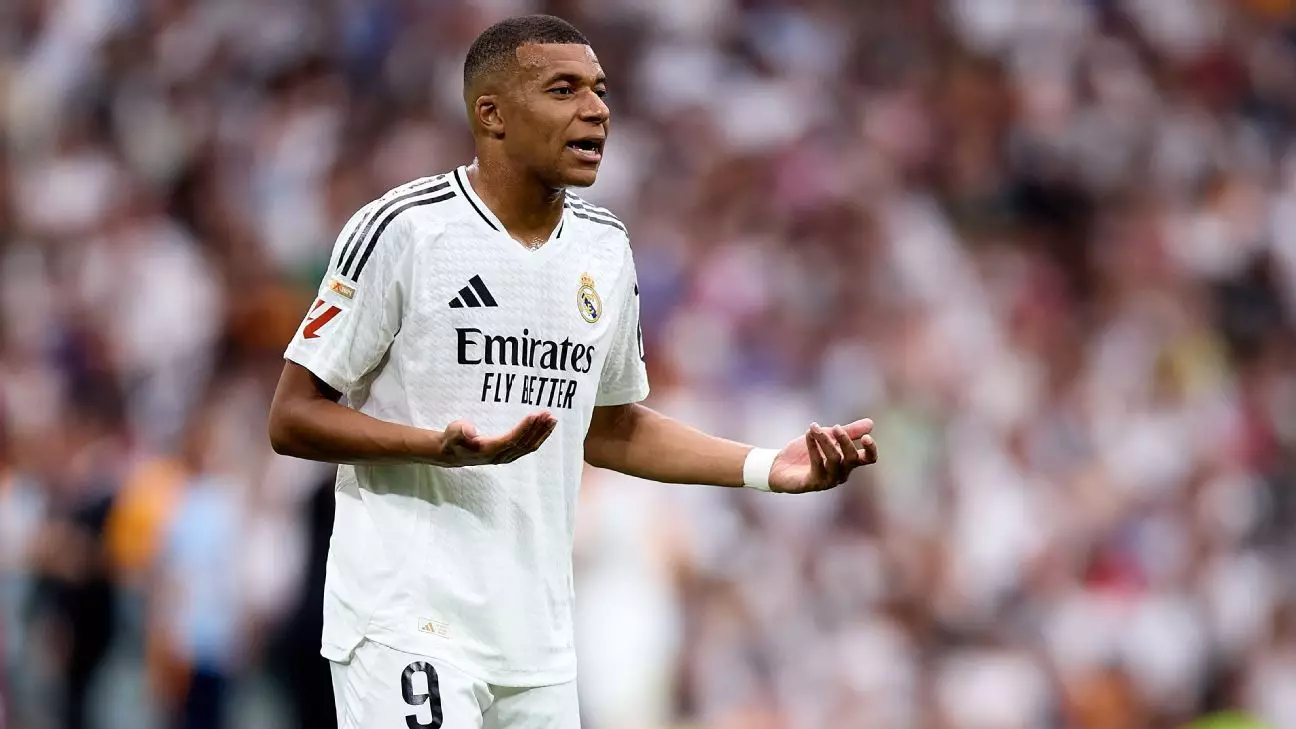In recent weeks, the intersection of club commitments and national pride has sparked lively discussions concerning Kylian Mbappé’s role as captain of the French national team. Comments from key figures, such as coach Didier Deschamps and teammate Aurélien Tchouaméni, highlight the complexities that arise when elite athletes balance obligations to both their clubs and their country. This ongoing scenario not only showcases the pressures that come with prominence in football but also reflects how public perceptions can influence decisions made behind the scenes.
Kylian Mbappé’s situation was notably marred by a thigh injury sustained during Real Madrid’s match against Alavés at the end of September. Forecasts suggested a recovery period of approximately three weeks, leading to his exclusion from France’s squad for crucial upcoming matches against Israel and Belgium. The crux of the matter intensified as Mbappé unexpectedly returned to the pitch for Madrid, igniting controversy and speculation regarding his commitment to the national cause. Many critics interpreted his playing for the club amid recovery as a snub to national duties, emphasizing the delicate balance players must maintain when the spotlight shines brightly on their choices.
Deschamps’s decision to omit Mbappé was based on his assessment of the player’s fitness. At a recent press conference, he asserted that the decision was fundamentally his own, devoid of any external pressure from Real Madrid. Such staunch declarations reflect how easily narratives can be spun in the media, where club loyalties and national expectations are often at odds. This notion is not confined to the case of Mbappé alone; instead, it serves as a representation of the broader issue of prioritizing club commitments over national representation.
Tchouaméni’s promotion to captain in the absence of Mbappé reinforces the evolving dynamics within the French team. Recognized for his burgeoning experience and maturity despite being only 24 years old, he is heralded as a figure capable of leading by example. While addressing media inquiries, Tchouaméni dismissed rumors of club pressure on Mbappé, instead framing the discussion around the player’s physical state. By standing up for his teammate, Tchouaméni not only showcases solidarity but also engages in the larger conversation of athlete accountability, which can often be misrepresented or misunderstood in the public realm.
Moreover, the decision to bring Tchouaméni in as captain could indicate an effort by Deschamps to cultivate a fresh narrative within the squad—one that underscores the importance of resilience and adaptability in difficult times. As the national team navigates through criticism, both for individual decisions and broader team dynamics, leadership will play a pivotal role in unifying the squad and redirecting focus to their performance on the field.
The Intersection of Fashion and Performance: A Cultural Commentary
Adding to the discourse surrounding the French national team, recent media criticisms highlighted the players’ fashion choices while reporting for duty. This facet reveals another layer where public perception and athlete behavior collide. Ibrahima Konaté’s entry to the training camp while draped in a hood received scorn from former international player Jérôme Rothen, who deemed it inappropriate. Such remarks about player attire point to the larger cultural expectations placed on athletes in public life, emphasizing how aesthetics can affect not just personal branding but communal acceptance as representatives of their country.
In response, players like Jules Koundé took to social media, suggesting that the fervor over fashion choices is misplaced and detracts from the more substantial issues at play within the squad. These debates, however trivial they may appear, speak volumes about societal values in sports culture, where image often weighs heavily against performance.
As France prepares for upcoming international matches, the interplay of injury management, leadership transitions, and public scrutiny in player choices will remain at the forefront. The responsibility on Deschamps and his squad is multifaceted; it extends beyond merely winning games to cultivating unity and maintaining focus amidst external pressures. In a world where athletes are placed under magnified scrutiny, balancing club and country will remain an eternally delicate dance. The challenge lies not only in addressing performance on the field but also in championing the diverse narratives that shape their footballing journeys—together, as a team.
